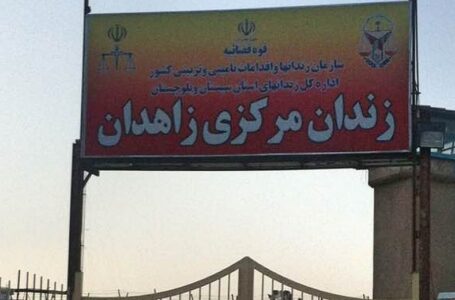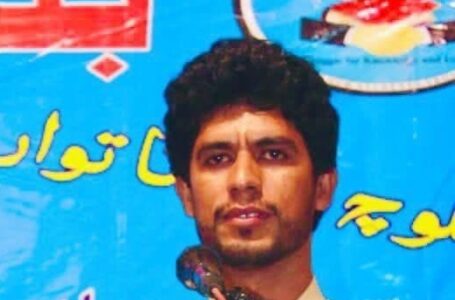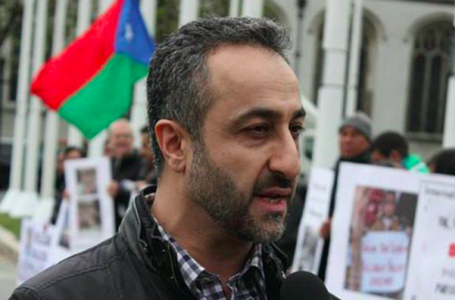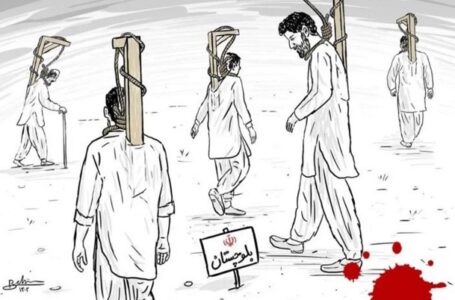Why a free Balochistan is central to ensuring peace in Asia?
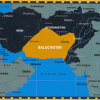
By Beebagr Baloch
Pakistan and China together suppressing Balochistan’s freedom movement will adversely impact the security interests of the US, Afghanistan and New Delhi.
India was divided in 1947 – and Pakistan was formally carved out on August 14, 1947, all in the name of religious hatred. After Pakistan emerged on the map of the world, it started promoting religious terrorism in the region and globally as well. At some point or the other, the entire world’s top most wanted terrorists have had connections, or have been stationed, in Pakistan.
Osama bin Laden, Mullah Omar, Mullah Mansoor, Hafiz Saeed, released Taliban leader Mullah Baradar and other terrorists found sanctuary in Pakistan under the protection of its army. The country is the second home to many of the world’s religious terrorists because Pakistani military and intelligence – as well as the majority of Punjabis there – believe that the country has come into existence in the name of religion, so the protection of religious jihadist extremists is their duty and in their national interest.
 Osama bin Laden, Mullah Omar, Mullah Mansoor, Hafiz Saeed and other terrorists have found sanctuary in Pakistan. (Photo: Reuters)
Osama bin Laden, Mullah Omar, Mullah Mansoor, Hafiz Saeed and other terrorists have found sanctuary in Pakistan. (Photo: Reuters)
Over the years, the Inter-Services Intelligence (ISI) of Pakistan has fully supported “Kashmiri militants” and leaders who demand independence from India. From 1989 to 1999, the Pakistani state fully supported rebelling Kashmiris. During this period, thousands of Indian security personnel were killed by militants, and many more Kashmiri and Indian civilians also targeted by Pakistan-backed militants. Their actions established a reign of fear – and drove out the majority of Hindus from the valley.
The interesting thing is that in 1996, Baloch patriotic leader Hyrbyair Marri laid the foundation of the current Baloch freedom movement. For the first time in Baloch history, this saw the Baloch movement spread from Kohistan Marri area to Gwadar, Balochistan. People from across the region and from all walks of life contributed to the Baloch movement. A state minister from Balochistan, Hyrbyair Marri belongs to Kohistan Marri which has huge reserves of gas, oil and others mineral resources, all which he could have used for his own gain. Yet, he left his luxurious life and started the current Baloch movement.
A man who is trustworthy, extremely honest and loyal to the Balochi cause. Heroic and uncompromising, Marri enjoys the support of the entire Baloch nation. Even to the Pakistanis, it has always been clear that getting their hands on Khair Bakhsh Marri and Hyrbyair Marri is almost impossible.
 Hyrbyair Marri laid the foundation of the current Baloch freedom movement. (Photo: Wikimedia Commons)
Hyrbyair Marri laid the foundation of the current Baloch freedom movement. (Photo: Wikimedia Commons)
One of Pakistan’s top politicians, Hasil Khan Bezanjo, informed the Pakistani parliament and military that they cannot bring Hyrbyair Marri to the negotiations table. The Pakistanis know that the movement Hyrbyair Marri started has totally disturbed Pakistan because it was this movement that encouraged towering Baloch leaders, like Nawab Akbar Khan Bugti, to also join in.
A man who lived like a king in Dera Bugti, Akbar Khan left all things for the Baloch cause – and eventually embraced martyrdom for the dream of a free Balochistan.
His murder by Pakistan was a turning point. It showed the youth that if Nawab Bugti, at the age of 80, can sacrifice his life for the Baloch cause, then they can too.
 Nawab Akbar Khan Bugti was one of the biggest leaders to have joined the Baloch freedom movement. (Photo: Reuters)
Nawab Akbar Khan Bugti was one of the biggest leaders to have joined the Baloch freedom movement. (Photo: Reuters)
Hyrbyair Marri’s brother, Balach Marri, who was a member of the Balochistan assembly, is another such figure who left a comfortable life to join the Baloch freedom movement. He also embraced martyrdom to further the cause of the Balochistan liberation struggle.
BNM leader Ghulam Muhammad was an ordinary man who embarked on an extraordinary journey of galvanising and organising Baloch people in support of Balochistan’s independence. Pakistani forces, it is said, abducted him along with his friends Lala Munir and Sher Mohammad Baloch from their lawyers’ office; their tortured dead bodies were found after seven days.
The Balochistan freedom struggle has also indirectly impacted the Kashmir issue.
In 2004 when Pakistan’s military leadership was engaged in fighting against Nawab Akbar Khan and Balach Marri, top advisors on Kashmir apparently requested General Parvez Musharraf to divert Pakistan’s attention from Kashmir to Baluchistan and solve the Baloch issue first or risk it festering and affecting the Kashmir movement.
According to some Pakistani military analysts, they worked out many fronts to counter the Baloch movement. ISI, through its puppets and undercover agents, attempted to divide the Baloch people on the basis of caste, class and tribe.
 Many are systematically confused by the anti-Baloch freedom struggle campaign of ISI and its hirelings. (Photo: PTI)
Many are systematically confused by the anti-Baloch freedom struggle campaign of ISI and its hirelings. (Photo: PTI)
Yet, those who were involved in the movement did not fall into the trap of these infiltrators – and Pakistan’s false propaganda – but some Indians were confused and misled by the anti-Baloch freedom struggle campaign of the ISI and its hirelings.
Hence, there are some Indians who wrongfully believe that the Baloch are divided. But, even if they are, the important question is, who is attempting to divide the Balochis?
The main political stakeholders of the current Baloch struggle are Hyrbyair Marri, Brahumdagh Bugti and his Baloch Republican Party and Khalil Baloch. The weakening of any of these three major faces – and their parties – would be tantamount to the weakening of the Baloch struggle.
Yes, there might be some differences on different issues, but the fact remains that all of us are united on the question of Balochistan’s independence.
The irony is when there are differences of opinion in Europe – and other countries – the contradictions are called the “beauty of democracy”. Yet, when that ”beauty of democracy” comes to Balochistan, it gets called ”lack of unity”?
 If Pakistan and China succeed in their plans of suppressing the Baloch liberation movement it would have devastating effects. (Photo: AP)
If Pakistan and China succeed in their plans of suppressing the Baloch liberation movement it would have devastating effects. (Photo: AP)
Even in the Pakistani side of Kashmir, there exist many parties with differing opinions, but the Pakistani state has never made the same excuse there. Even as the Pakistani government goes on to support the Kashmiri cause at the UN and other international forums, it used the same reasons to attack the Baloch movement.
Pakistan’s former military generals and others have debated that if Pakistan succeeds in weakening the Baloch movement, not only will they be able to take control of Afghanistan through their proxies, but also be able to tackle the Kashmir issue more effectively. That’s why they are apparently making a scheme of bringing millions of Chinese and Punjabis to Gwadar, to totally destroy the Baloch and gain superiority over the area with the help of China.
If Pakistan and China succeed in their plans of suppressing the Baloch liberation movement, it would not only be disastrous for Balochistan but will also have devastating effects on the US, Afghanistan and India.
Through their proxy Taliban and other religious extremists, they will take control of Afghanistan, counter India through Kashmiri militants and weaken the US influence in the region with the Chinese influx in Gwadar.
China already plans to build a naval base inside a gated city and eventually take control of the Strait of Hormuz. Once China gets a stronghold in Gwadar, it will easily control the Chabahar port as well.
That’s why Baloch leader Hyrbyair Marri rightly said that a stronger Baloch movement and an independent Baloch state can guarantee peace in the region and help get rid of Pakistan’s infiltration in Afghanistan and its international bullying and blackmailing tactics.
Courtesy: DAILY O

